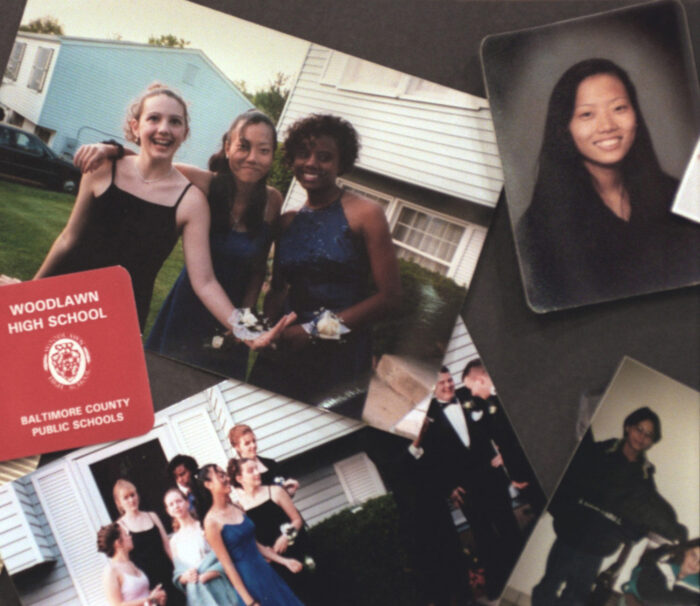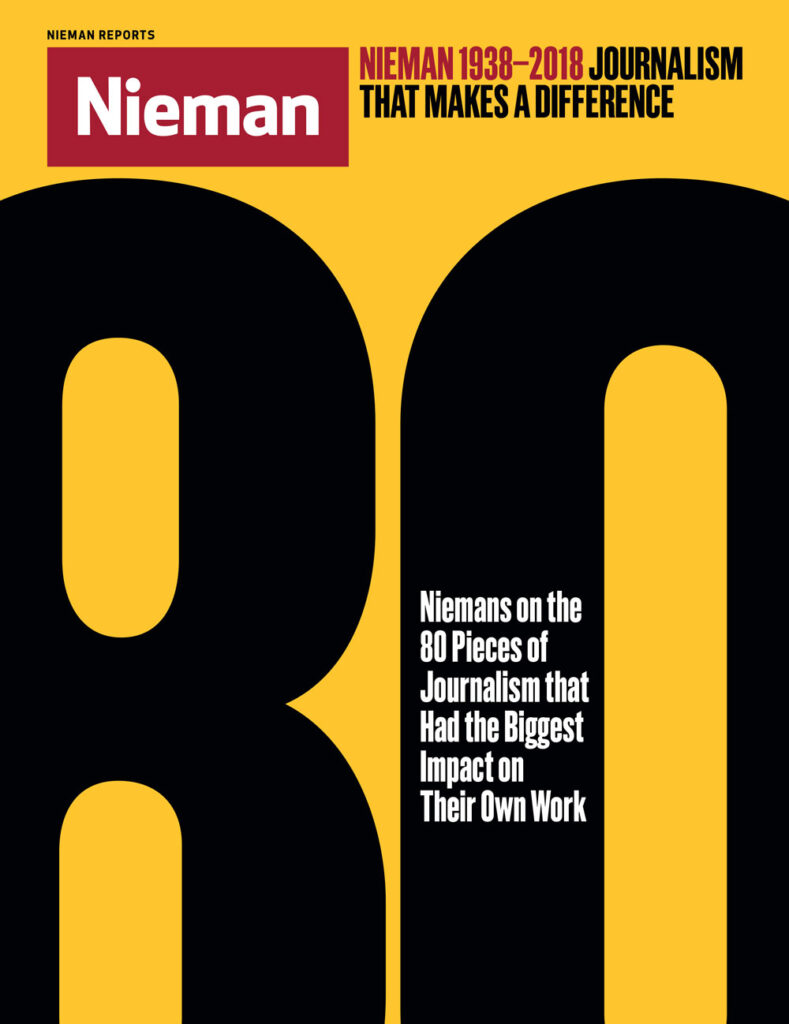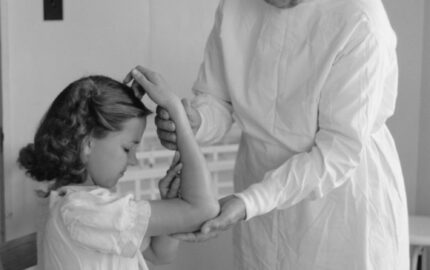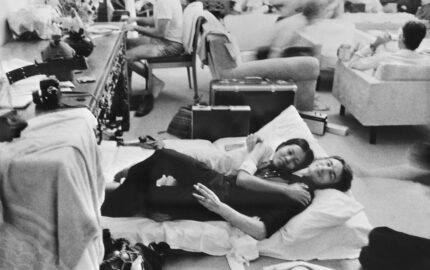Sometime around the point when “Saturday Night Live” did a parody of “Serial,” a joke passed among audio producers that “Serial” invented podcasts. It didn’t, of course, but in a lot of ways, it may as well have.
“Serial” is a medium-defining work. It took near-perfect advantage of the form’s aesthetic and technological advantages. The show probably wouldn’t have been such a hit without both the inherent intimacy of audio and the ability to send new pieces of audio to listeners’ phones automatically. Being an outgrowth of “This American Life,” a show that redefined radio storytelling, didn’t hurt either.
The story and the way it was told brought listeners to podcasts. This may have been inevitable given the format’s growth. But podcasters weren’t going on late-night shows before “Serial” host Sarah Koenig did. Its effect on podcasting was as if a story in The New York Times got people to subscribe to four other newspapers as well.
The show came out during my Nieman year. I had spent most of my career working with audio, but I felt stuck. I wanted to do something beyond the typical broadcast story, but the options didn’t seem clear. So many podcasts at the time were interview or roundtable shows and it wasn’t easy to get people to pay attention. Radio documentaries were a good option for in-depth reporting, but they were hard to get on the air. When “Serial” blew up, it was like a giant voice granting permission to do something different, and challenging all us audio
journalists to make something great.
This shouldn’t overshadow, though, that “Serial” is also a great work of journalism, a great story. It effectively reopened a little-known murder case and educated its audience on the justice system.
Serial
Season 1, Episode 1: The Alibi
Co-created and co-produced
by Sarah Koenig and Julie Snyder
Excerpt
Sarah Koenig: For the last year, I’ve spent every working day trying to figure out where a high school kid was for an hour after school one day in 1999—or if you want to get technical about it, and apparently I do, where a high school kid was for 21 minutes after school one day in 1999. This search sometimes feels undignified on my part. I’ve had to ask about teenagers’ sex lives, where, how often, with whom, about notes they passed in class, about their drug habits, their relationships with their parents. And I’m not a detective or a private investigator. I’m not even a crime reporter. But, yes, every day this year, I’ve tried to figure out the alibi of a 17-year-old boy. Before I get into why I’ve been doing this, I just want to point out something I’d never really thought about before I started working on this story. And that is, it’s really hard to account for your time, in a detailed way, I mean. How’d you get to work last Wednesday, for instance? Drive? Walk? Bike? Was it raining? Are you sure? Did you go to any stores that day? If so, what did you buy? Who did you talk to? The entire day, name every person you talked to. It’s hard. Now imagine you have to account for a day that happened six weeks back. Because that’s the situation in the story I’m working on in which a bunch of teenagers had to recall a day six weeks earlier. And it was 1999, so they had to do it without the benefit of texts or Facebook or Instagram.
SERIAL Season 1 Episode 1, “The Alibi,” co-created and co-produced by Sarah Koenig and Julie Snyder. Produced by the creators of THIS AMERICAN LIFE, in collaboration with WBEZ Chicago. Hosted by Sarah Koenig. Available for download Oct. 3, 2014.




